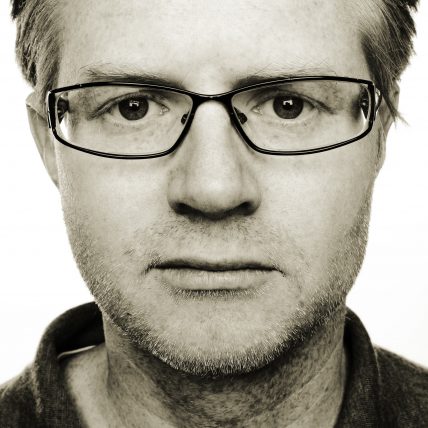As the next installment in our series of profiles of
this year’s June in Buffalo composition faculty, we feature David Felder, who
is also the festival’s director. Currently a SUNY Distinguished Professor and
the Birge-Cary Professor in Music Composition at the University at Buffalo (UB),
Felder wears many hats: as professor, practicing composer, and arts
administrator. In these roles, he has built UB’s music department into a
formidable powerhouse for new music.
As a composer, Felder has recently completed two
large-scale works: Netivot
for string quartet, electronics, and video, and Les
Quatre Temps Cardinaux, for vocal soloists, orchestra,
electronics, and video, both of which have been featured at recent June in
Buffalo Festivals. This year’s festival features two Felder premieres: Canzona, to be performed by the Buffalo
Philharmonic’s brass section, and Violin
Concerto, a portion of a longer work in progress to be performed by Irvine
Arditti and Ensemble Signal. Three other Felder works will also be presented: Incendio, performed by the Buffalo
Philharmonic brass; Another Face,
performed by Irvine Arditti; and partial [dist]res[s]toration, performed by
Ensemble Dal Niente.
Like
Felder’s earlier work Incendio, Canzona is, as the composer describes it, a “trans-literation” of
an existing vocal work of his own. Historically, the canzona emerged in
precisely this fashion during the late 1500s, and Felder’s interest in the music of
this period, particularly in Robert King’s brass arrangements of Giovanni
Gabrieli’s canzonas, was a crucial point of departure for the work. Although
Felder’s Canzona is a 21st
century work written in his strikingly individual musical language, it engages
with numerous aspects of the historical canzona: a consciously “choral”
approach to ensemble writing, continuity of rhythmic momentum, and quasi-antiphonal
textures.
Violin Concerto will be a preview of a few
movements from what will eventually be an eight-movement, 25-30 minute work, to
be premiered in full by Irvine Arditti and Ensemble Linéa on a concert at UB’s
Center for 21st Century Music in November. While Felder’s works of
the 1980s and 1990s explored extended single-movement forms (such as Another Face), starting in the early
2000s, he started exploring a unique approach to multi-movement form (such as
in partial [dist]res[s]toration). While in 18th-
and 19th- century approaches to multi-movement form, movements
contrasted with each other, and internally unified through key, tempo,
instrumentation, topoi, and more, Felder describes his individual movements as “kaleidoscopic,”
as each drawing upon multiple, contrasting threads of material.
Also a tireless arts administrator, he oversees four
arts initiatives at UB. Through diligent work over more than three decades, he
has built up one of the leading centers for new music in North America, and
sustained it in the wake of declining state funding and local foundation
funding. Perhaps most notably, he has led June in Buffalo since
1985, taking the reins from former UB Professor Morton Feldman; former June in
Buffalo faculty member Harvey Sollberger has chronicled Felder’s tenure as
director in detail here.
Felder also leads Center
for 21st Century Music at the University, an
institute that produces guest artist concerts and guest lectures by high-profile
national and international new music luminaries. Through the Center, Felder is
artistic director of the Slee Sinfonietta,
UB’s resident faculty chamber ensemble, whose focus is the performance of 20th
century classics and new works. Felder’s activities also extend beyond the
music department: together with fellow SUNY Distinguished Professor Bruce
Jackson, Felder is founding co-director of the multi-disciplinary Creative Arts Initiative,
a platform for master artists to conduct residencies at UB.
This year’s festival is notable for its partnerships
with two European institutions, the Norwegian Academy of Music in Oslo, Norway,
and the Voix Nouvelles Course for Young Composers at the Abbaye de Royaumont
near Paris, France. Two composition professors from the Norwegian Academy will
be featured faculty at the festival, while an ensemble of Academy graduate performance
students will perform works by graduate composition students from both the
Academy and UB; this publication detailed these activities in a past
post.
In partnership with Voix Nouvelles, June in Buffalo and its partner course will
exchange participant-composers each year.
Beyond partnerships, this year’s festival presents an
unusually stylistically diverse rostrum of faculty composers, together with some
exceptional concert programming. In non-coastal America, it is uncommon to hear
top-notch European new music chamber ensembles like Cikada; it is perhaps even
more unexpected to hear live performances of music like Brian Ferneyhough’s
challenging chamber music (particularly a lengthy, ultra-virtuosic work for
larger forces like Terrain).
Similarly, it is rare in the US to hear a full program of new orchestral works,
as the festival offers on its final concert. A full concert schedule is
available here—we
look forward to seeing you there!








